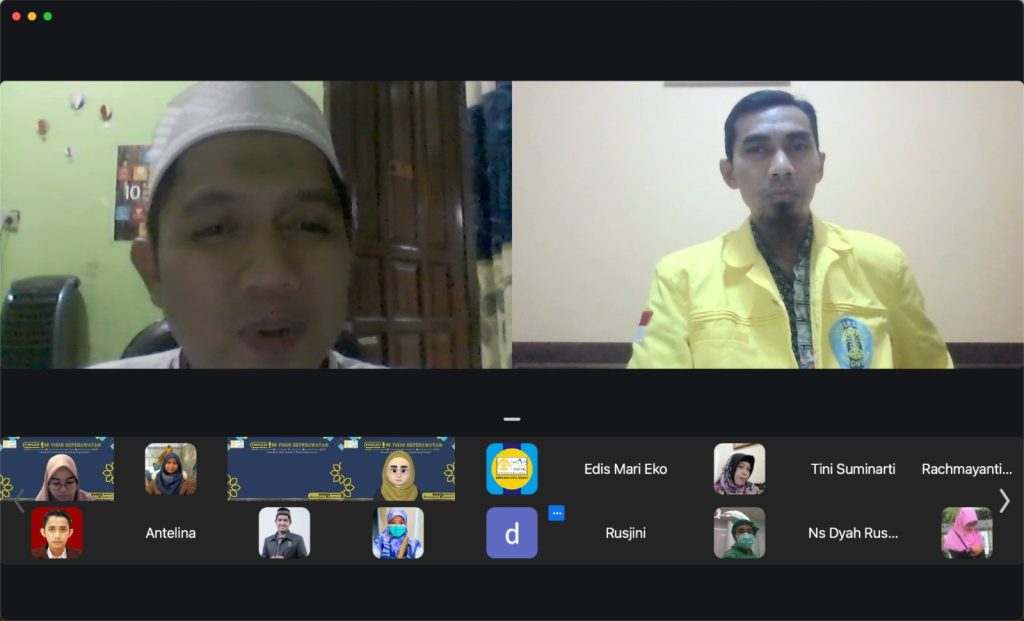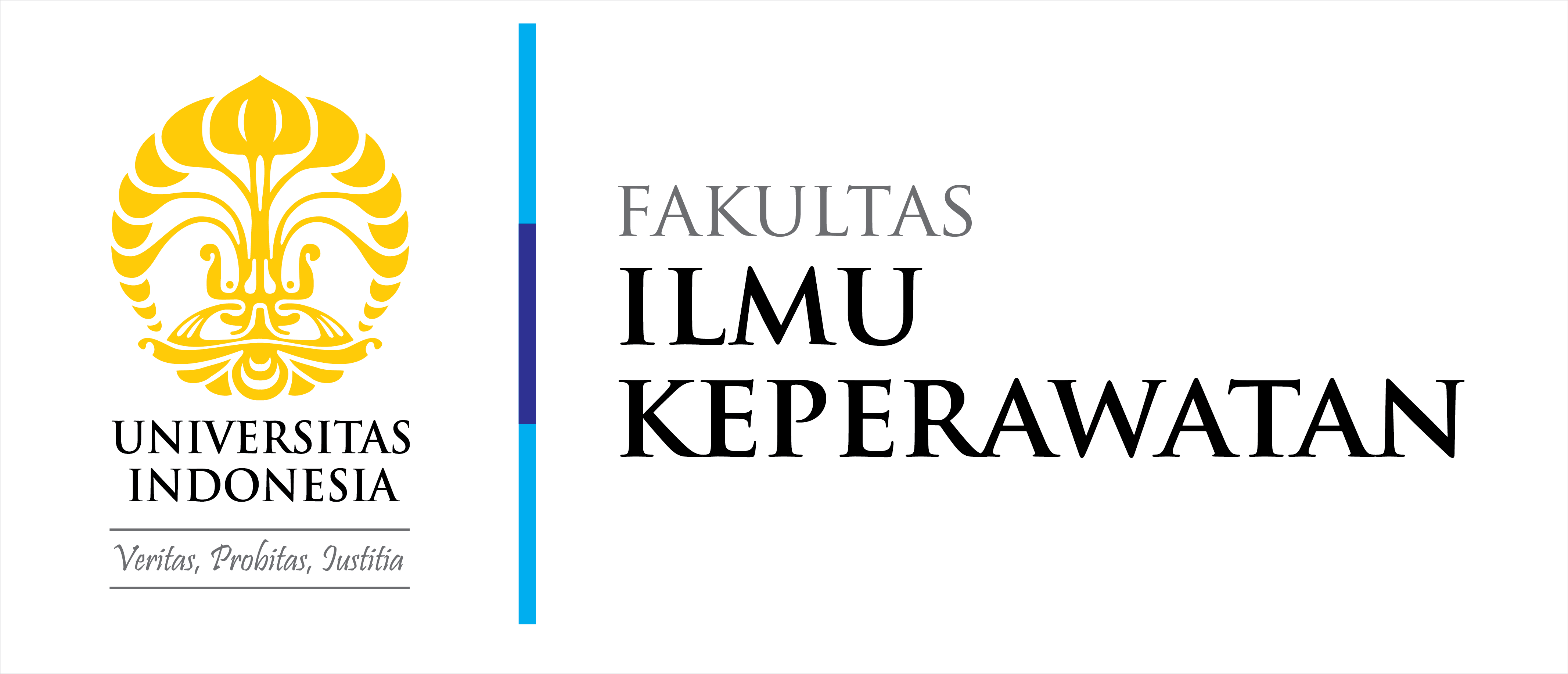
In an effort to continue strengthening holistic nursing care, the Postgraduate Student Association of the Faculty of Nursing, University of Indonesia (HMP FoN UI) took another step forward by organising a Nursing Jurisprudence Podcast themed ‘Understanding the Jurisprudence of Worship in the Nursing Field.’ The event was held online on Saturday, 10 August 2024, and was attended by 50 participants consisting of FoN UI academicians and the general public.
Holistic nursing care not only focuses on the physical condition of the patient, but also includes their psychological, social and spiritual aspects. In the context of nursing, especially in a Muslim-majority country like Indonesia, an understanding of the fiqh of worship is crucial. This is because many patients, despite being sick, still want to fulfil their religious obligations in accordance with Islamic law.
Acting Dean of FoN UI, Dessie Wanda, S.Kp., M.N., Ph.D., emphasised the importance of integrating spiritual values in nursing care. ‘At FoN UI, we always strive to ensure that the nurses we educate not only have excellent clinical competence, but also the ability to understand and support patients' spiritual needs. This is part of our efforts to provide truly holistic nursing care,’ said Dessie Wanda.
In this podcast, Ustadz Arfiansyah Harahap, Lc, M.Pd.I., who is known as an expert in Arabic, Tafsir, and Jurisprudence, was invited to provide in-depth insight into the application of the fiqh of worship in sick conditions. He explained that Islam, as a religion that is rahmatan lil ‘alamin (mercy for the universe), has established various facilities or rukhsah for its people who are unwell. This includes various aspects of worship, ranging from how to perform ablutions, pray, to fasting in the month of Ramadan.
‘Islam never burdens its ummah. On the contrary, there are various facilities that have been regulated by sharia for those who are in a sick condition. For example, if someone cannot use water for ablution because they are worried that it will worsen their health condition, then Islam provides an alternative to tayamum,’ explained Ustadz Arfiansyah.
This kind of knowledge, according to Dessie Wanda, is very important for every nurse to have. ‘When nurses understand the fiqh of worship, they can be more empathetic and supportive of patients in fulfilling their religious obligations, even in difficult health conditions. This not only provides inner peace for the patient, but can also help the overall healing process,’ she said.
The Nursing Jurisprudence podcast also served as a platform for participants to ask practical questions that they often face in their daily duties. One of the interesting topics discussed was about patients who have to undergo long surgeries and their prayer obligations.
In this discussion, Ustadz Arfiansyah explained, ‘Islamic Sharia is very flexible and provides a lot of relief for those who are in special conditions. For example, in the case of surgery, patients and even the medical personnel involved in it are allowed to combine their prayers, that is, combine two prayer times in one time, either before or after surgery.’
This collaboration between nursing science and religious understanding, according to Dessie Wanda, not only enriches nurses' professional competence, but also strengthens the emotional connection between nurses and patients. ‘When patients feel that their spiritual needs are valued and supported, they will feel safer and more comfortable. This is the essence of holistic nursing care that we emphasise at FoN UI,’ she added.
Through this podcast, participants not only gain theoretical knowledge but also practical applications of the fiqh of worship in clinical situations. For example, it discusses the fasting laws for patients who receive infusions. Ustadz Arfiansyah elaborated that according to the majority of scholars, infusions given for treatment do not break the fast, as long as they do not contain nutrients that resemble food.
‘With this knowledge, nurses can provide correct information to their patients, which in turn can help patients make better decisions about their worship during illness,’ explains Dessie Wanda. ‘It is part of nurses' professional responsibility to provide holistic and evidence-based support.’
Dessie Wanda also emphasised that activities such as the Nursing Jurisprudence Podcast are one of FoN UI's ways of building a generation of nurses who are not only technically competent, but also have integrity and a deep concern for patient welfare. ‘We believe that good nurses are those who not only master clinical skills, but also have a caring heart and are able to understand the needs of patients thoroughly,’ she said.
By continuing to organise educational activities like this, FoN UI hopes to produce nurses who are not only able to provide high quality nursing care, but are also able to be role models in integrating spiritual values in their nursing practice. This is in line with FoN UI's vision to become a leading nursing education institution that focuses not only on developing science, but also on developing character and human values.
Dessie Wanda concluded with the hope that this podcast will encourage more nurses to continue learning and developing themselves, especially in aspects that may have been overlooked in formal nursing education. ‘We hope that with a better understanding of the fiqh of worship, nurses can provide better and more humane care, and help patients go through their difficult times with more peace and comfort.’
FoN UI, through its various initiatives, continues to be committed to developing nursing practices that are not only orientated towards physical health, but also towards the holistic well-being of patients, encompassing biological, psychological, social, and spiritual aspects. Through education, research, and community service, FoN UI will continue to be a pioneer in the transformation of nursing care in Indonesia, bringing sustainable positive change to the wider community.
Author : Heru Nurinto
Editor : Public Relation FoN UI

Gedung A Lantai 2, Rumpun Ilmu Kesehatan (RIK), Kampus UI Depok,
Jl. Prof. Dr. Bahder Djohan, Kampus UI Depok, Pondok Cina, Kecamatan Beji, Kota Depok, Jawa Barat 16424, Indonesia.
Jl. Prof. DR. Sudjono D. Pusponegoro, Kampus UI Depok, Pondok Cina, Kecamatan Beji, Kota Depok,
Jawa Barat 16424, Indonesia.